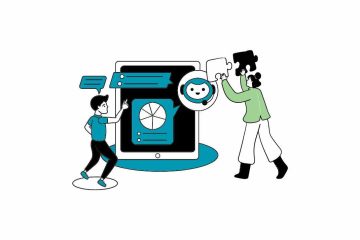I. Introduction
Artificial Intelligence (AI) has become an integral part of modern society, providing solutions to complex problems and transforming industries. However, there are concerns about the potential for AI to surpass human intelligence and take over humanity. This blog will explore the history, potential, and future of AI, and examine whether AI will take over humanity.
AI refers to the ability of machines to perform tasks that typically require human intelligence, such as learning, problem-solving, and decision-making. AI systems use algorithms and data to make decisions and improve their performance over time.
AI has the potential to revolutionize industries, from healthcare and finance to transportation and entertainment. AI can help automate mundane tasks, improve efficiency, and provide insights that humans cannot easily detect.
Concerns about AI taking over humanity
The fear of AI taking over humanity stems from the idea of superintelligence, where AI surpasses human intelligence and becomes uncontrollable. This could lead to disastrous consequences, such as AI making decisions that harm humanity.
II. The History and Evolution of AI
Early beginnings of AI
The concept of AI can be traced back to the 1950s when computer scientists started exploring the idea of machine intelligence. The first AI program was developed by John McCarthy in 1956, and since then, researchers have been developing various AI techniques.
Developments and advancements in AI
AI has undergone significant advancements in recent years, with breakthroughs in machine learning, deep learning, and natural language processing. These advancements have enabled AI to perform complex tasks such as image and speech recognition, and decision-making.
Current state of AI and its capabilities
Currently, AI is being used in various applications, from personal assistants like Siri and Alexa to self-driving cars and medical diagnosis. AI is also being used to develop predictive models for businesses and improve customer experience.
Read Also: Notion AI Editor: A Next-Gen Content Creation Tool
III. The Potential of AI to Take Over Humanity
Theories and predictions about the future of AI
There are various theories and predictions about the future of AI, with some experts suggesting that AI could surpass human intelligence in the next few decades. This could lead to the creation of superintelligence, which could be uncontrollable.
Possible scenarios where AI could take over
AI could take over humanity in different ways, such as taking control of critical infrastructure or weapon systems. AI could also become so advanced that it could create new AI systems without human intervention, leading to a chain reaction that spirals out of control.
Examples of AI already surpassing human abilities
AI has already surpassed human abilities in certain tasks, such as playing complex games like chess and Go. AI has also been used to create art and music that are indistinguishable from human creations.
Read Also: Top 7 AI Art Generators in 2023
IV. Arguments against AI Taking over Humanity
Limitations and flaws in AI
AI is not perfect and has limitations and flaws. For instance, AI systems can be biased, making decisions that are unfair or discriminatory. AI can also be vulnerable to attacks and hacking, leading to potential security risks.
The role of humans in controlling and regulating AI
Humans have a crucial role to play in controlling and regulating AI. This includes setting ethical standards for AI development, ensuring transparency and accountability, and making decisions about the use and deployment of AI.
The importance of ethical considerations in AI development
The development of AI must be guided by ethical considerations to ensure that AI is used for the benefit of humanity. Ethical considerations include issues such as privacy, transparency, and fairness.
Read Also: Top 10 AI Tools For Digital Marketing in 2023
V. The Future of AI and Humanity
Possible outcomes of the integration of AI in society
The integration of AI in society could lead to significant improvements in various sectors, such as healthcare, transportation, and education. However, it could also lead to job displacement and exacerbate existing social and economic inequalities. Therefore, it is crucial to consider the potential impacts of AI on society and take measures to address them.
The need for collaboration between humans and AI
AI should be viewed as a tool that can complement human capabilities, rather than a replacement for human intelligence. Collaboration between humans and AI can lead to better outcomes and solutions to complex problems.
The role of education and research in shaping the future of AI
Education and research play a critical role in shaping the future of AI. It is essential to educate the public about the potential benefits and risks of AI, and to invest in research that addresses important ethical, social, and legal implications of AI.
VI. Conclusion
In conclusion, the potential for AI to take over humanity is a valid concern that requires serious consideration. However, it is important to approach this issue in a balanced and responsible way, considering both the potential benefits and risks of AI. The development of AI must be guided by ethical principles, and humans must play a crucial role in controlling and regulating AI. By working collaboratively, humans and AI can create a better future for humanity.

Hello, I’m Ali Raza, the brain behind Digital Realm Trends.
Hailing from the vibrant world of digital marketing, I’ve honed my skills over years. Based on my experience, I’m here to unravel the complexities of digital marketing, analytics and paid marketing, crafted for individuals like you. Join me in uncovering the power of digital marketing tools and strategies, fueled by experimentation and insights.




